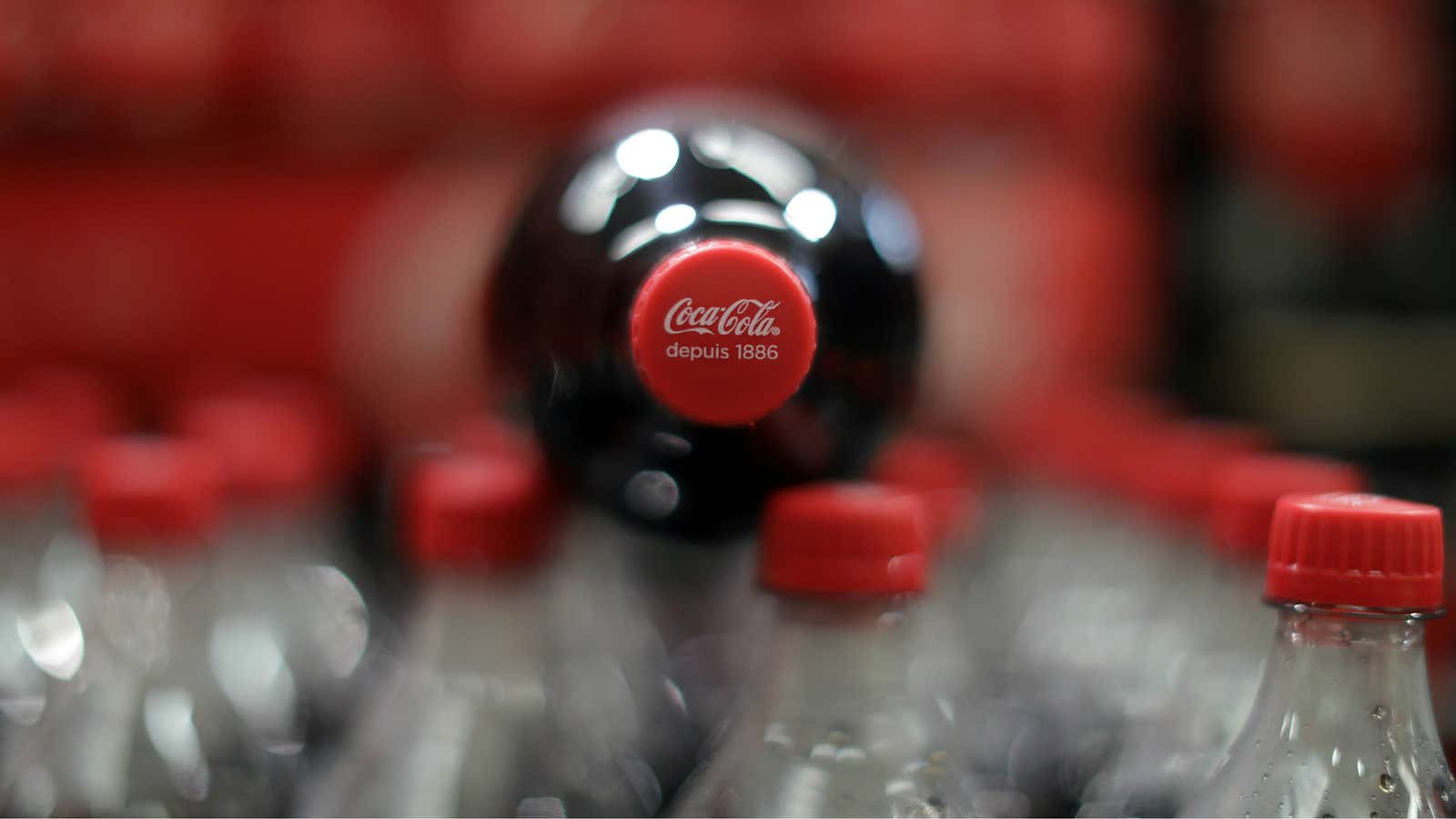With less than two weeks until election day in the US, the money being used to support or destroy four soda-tax measures is really piling up.
So far this year, finance disclosures show the soda industry has unloaded more than $25 million in Boulder, Colorado; San Francisco; Oakland; and Albany, California. For giant soda companies, such as Coca-Cola and Pepsico, defeating these tax measures is a symbolic crusade to protect themselves from befalling a similar fate as tobacco. Indeed, as controversies around the impact of sugar and obesity on the health of Americans has increased, food companies have faced mounting pressure to change their products and the ways they are marketed.
As Nov. 8 draws closer, the battle over soda taxes has largely become a rough-and-tumble fight between the industry and three US billionaires: former New York City mayor Michael Bloomberg and Houston philanthropists Laura and John Arnold, who amassed much of their fortune from the energy industry. Here are data showing expenditures this year through Oct. 22.
Overall, the pitched battle between supporters and opponents of the measures is one in which the industry is left looking as though it’s fighting against the world. In San Francisco, 79 individuals or groups have contributed to the fight for a soda tax. Meanwhile, only five have given to the effort to defeat it, and most of that money is from the American Beverage Association, which represents companies including Coca-Cola and Pepsico.
In Oakland, 23 individuals or groups have contributed money to fight for a soda tax. Only the American Beverage Association and Coca-Cola have contributed on behalf of the effort to fight the tax proposal.
Here’s a breakdown of money spent by supporters and opposition over the soda tax measures:
The soda industry earlier this year suffered a crippling blow when Philadelphia became the first major US city to adopt such a a tax. On Oct. 28, Harvard researchers released new data that showed taxes on a penny-per-ounce basis of sugary drinks would save taxpayers in the three California cities tens of millions of dollars in health care costs. The American Beverage Association has already denounced those findings.
